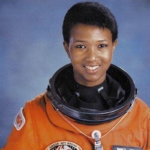
Carla Hayden is the first woman and first African American to a Librarian of Congress. An incredible accomplishment highlighted in TIME Magazine’s Firsts Edition on Women changing the World.
Here is The Librarian’s Full Interview:
“I saw myself in a book and that will never leave me.”
Bright April by Marguerite de Angeli was how I first learned about library fines. I was an 8-year-old girl going to P.S. 96 in Queens, and there was a storefront branch right across the street.
I don’t remember who put that book in my hand, but somebody knew that a little girl who was brown and had pigtails needed a book that reflected her. I saw myself in a book and that will never leave me. I love that book to this day.
When you grow up in a family that was devoted to education and where books were important, and then you see yourself reflected in something that’s important, it gives you a sense of “There I am. There I am.” It’s so important that children see themselves, but also are exposed to the world. Books can be mirrors and windows, we like to say.
In terms of being the Librarian of Congress, it’s important that a woman is in the position. Librarianship is one of the four “feminized professions.” Eighty-five percent of the workforce is female but men are in most of the directorships and management positions. So to have a woman Librarian of Congress is just as significant as race in terms of diversity.
Librarians have a strong stereotype. When you see It’s a Wonderful Life, and Jimmy Stewart is looking for Donna Reed at the end and she’s coming out of a library … very strong stereotype. When people think “librarian,” they say, “Oh, must be kind of dull.” In commercials when they want to show that a product is really snappy, a librarian tastes the gum and goes wild. That’s what people think about the librarian. To have the profession represented by someone who is somewhat culturally diverse, with a short haircut, shows that librarians can be cool. I think it will help with our recruitment.
In Baltimore, the library was at the epicenter of the unrest in 2015. It had been a refuge for that community. An opportunity center—expungement classes, flu shots, people online applying for jobs. When that library was not only protected during the unrest and then was open the next day, that Tuesday morning—I’ll never forget it—at 10 o’clock, there were people waiting to get inside. Not only for refuge and a place to connect but there was, for instance, a young man who was so relieved that we were open so he could fill out applications online. That Thursday, he came back and said he had three nibbles. That’s what a library in a community can mean.
When I first started library studies, it was in the mid-’70s, and there was a lot going on culturally. I was in school with people from all walks of life. We were very idealistic. There were very few men. After I graduated, I was asked to be on a panel with a few other classmates, who had also gotten jobs, to talk to the incoming graduate students. There were two female colleagues and then a gentleman, who … let’s just say he was not the brightest star in the class. I was a children’s librarian. One of my other colleagues was in cataloguing and the other was doing reference. This young man had on a suit and a tie, and he was a manager already. I think we all collectively kind of looked surprised that he was in this position, and we kind of did a “Gawww, gee! How did that happen?”
Over time, as I had more management experience, when I was for instance selected to be the director of the Enoch Pratt Free Library, people said, “Oh, you’re African American.” But what was notable was that I was a woman. In a profession that started out viewing women as “genteel hostesses”—there’s a feminist treatise on feminism and librarianship—women should feel welcome. Librarians rule.
Watch the interview on time.com.





